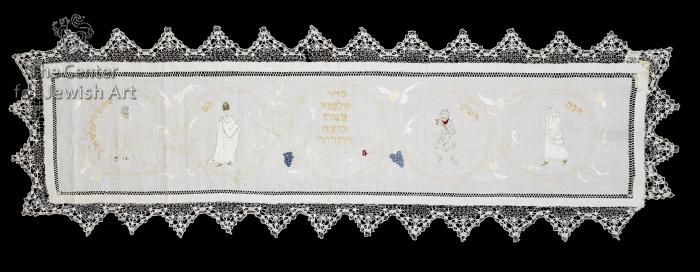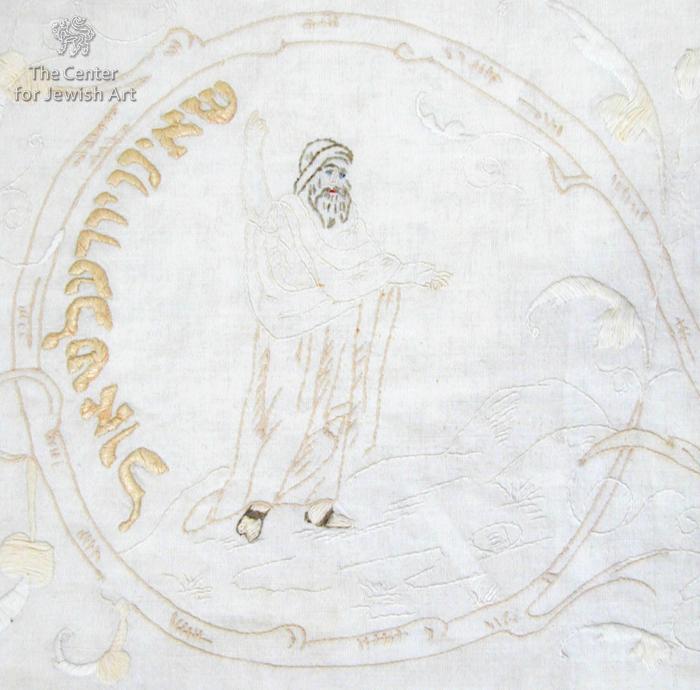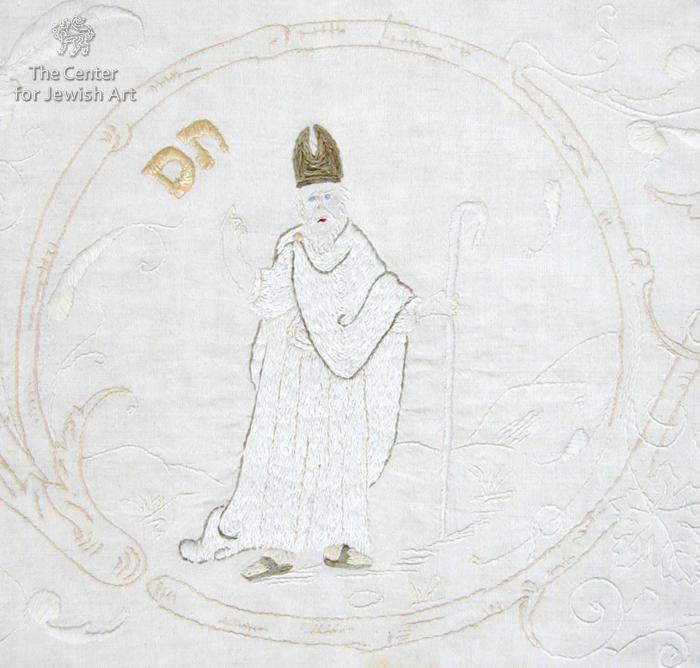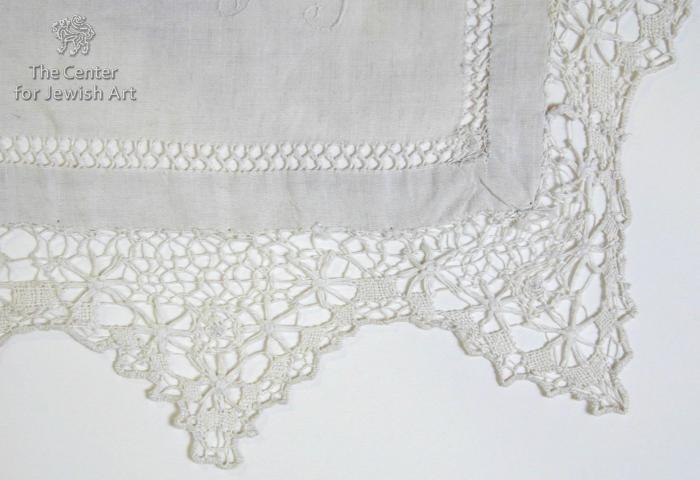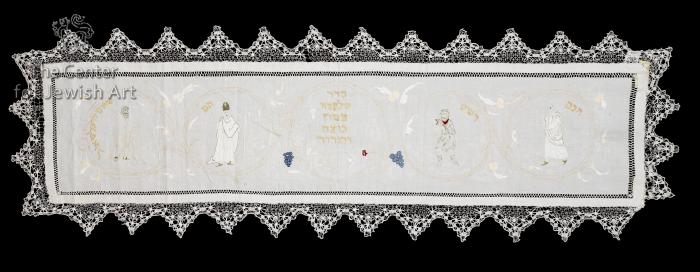Obj. ID: 38503 Passover towel, Germany, circa 1850

sub-set tree:
H | Haggadah, Passover (Listed according to the text of the Haggadah; See also separate biblical subjects in this list) | The Main part of the Haggadah (arranged with the Ritual Acts (Seder Signs) interspersed with the main components of the text of the Haggadah): | Maggid (the narration) | Maggid-5: The baraita of the Four Sons
G | Grapes | Grapes, Cluster of
T | Tablets of the Law
S | Seder plate
S | Species, the Seven (Listed according to Deut. 8:8) | Wheat (Species, the Seven)
A | Aaron
M | Moses | Moses and the Decalogue
|
The following description was prepared by William Gross:
The use of a decorated towel cover is a custom largely limited to the German-speaking areas in Europe. These covers are usually embroidered and date from the 18th and 19th centuries. This object was used to make the plain towel a decorative item for the festive evening.
This Pesach towel cover is crafted in white on white embroidery in an elegant 19th-century manner. The lace around the perimeter of the cloth is an integral part of the creation and delicately crafted. All of the illustrations and decorations are in subtle colors and do not appear to have faded to these tones. Among the images of the Four Sons that are depicted, of particular interest is the presentation of Moses himself as the Wise Son as well as the depiction of the innocent son as Aaron, the High Priest. In the center are illustrated wheat stalks, a bottle of wine and grapes. The cloth is a particularly elegant work of stitchery and composition.


